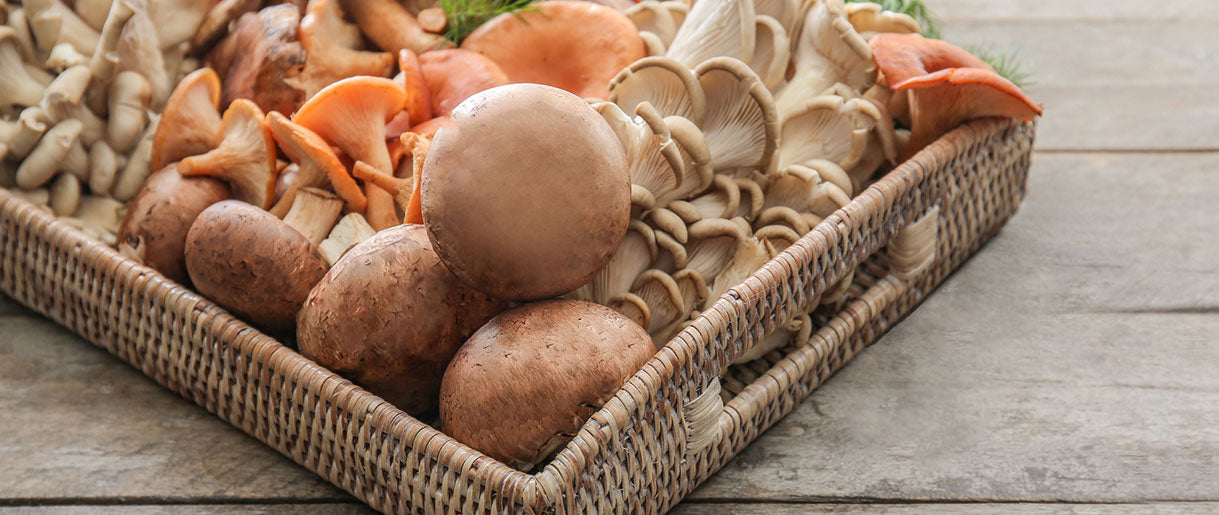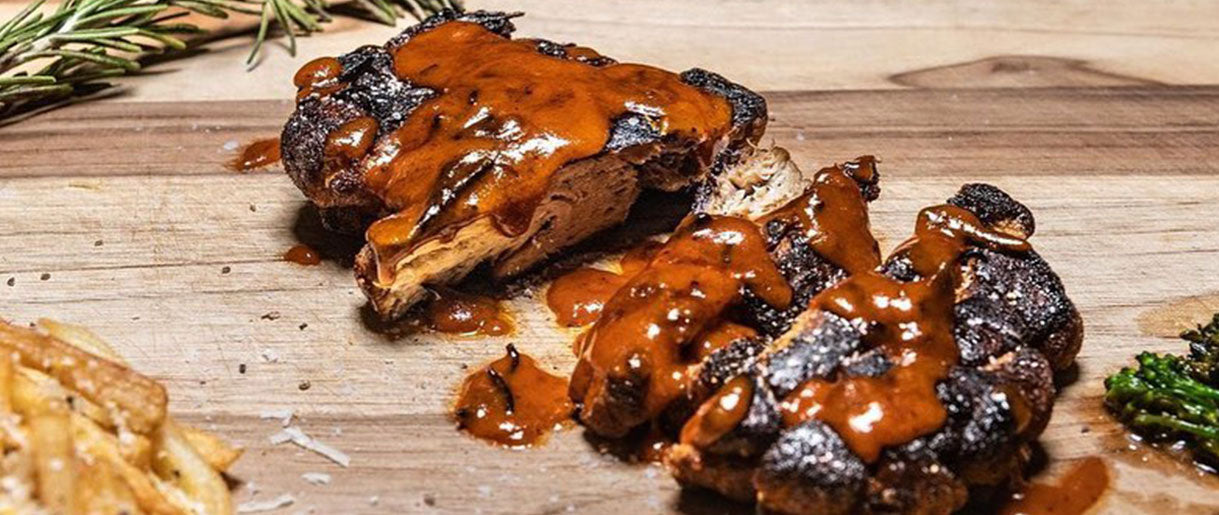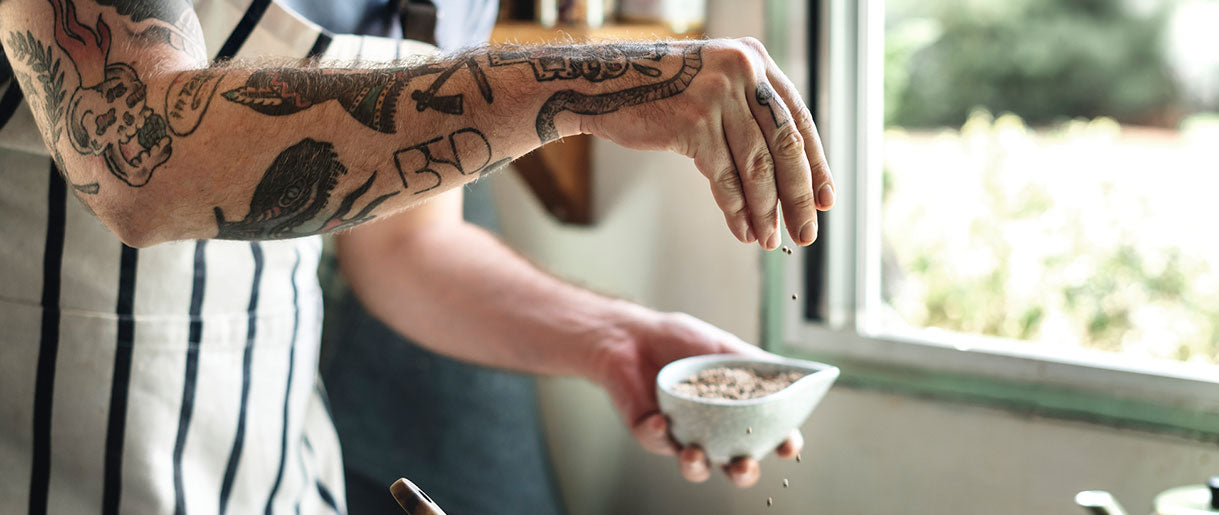Mushrooms are a popular ingredient in many dishes worldwide due to their unique flavor, texture, and numerous health benefits. They come in a wide variety of types, each with its own unique characteristics and culinary uses. Whether it's the meaty texture of portobellos, the delicate taste of creminis, or the versatility of white button mushrooms, these fungi can enhance any dish they're added to. But, one question that often comes up about these versatile ingredients is their raw form consumption.
Yes, it is possible to eat certain types of mushrooms raw, such as ordinary grocery stores varieties like white buttons, cremini, or portobello mushrooms. However, they should always be appropriately cleaned first to remove any dirt or contaminants.
While raw mushrooms offer nutritional benefits such as fiber and vitamins B and D, it's important to note that cooking mushrooms can enhance the availability of certain nutrients, like protein and antioxidants. It may also help break down potentially harmful compounds that some mushrooms contain.
In addition, some types of wild mushrooms can be toxic when eaten uncooked and even life-threatening. Always make sure you are knowledgeable about the type of mushroom you are consuming, and when in doubt, cook your mushrooms or consult a professional.
In this article, we'll explore the pros and cons of consuming them raw, understand the nutritional differences between cooked and raw mushrooms, and learn about the potential dangers of eating certain mushrooms in their raw state. With this knowledge, you'll be better equipped to make informed decisions about incorporating mushrooms into your diet.
Overview of Mushrooms: A Fascinating World of Edible Fungi

What Are Mushrooms?
Mushrooms are fungi that grow above ground or on their food source. They are known for their unique flavors, textures, and, in some cases, medicinal properties. Not all mushrooms are created equal, and it's essential to understand this before you think of eating mushrooms raw or cooked.
Getting Acquainted With Edible Mushrooms
When discussing eating mushrooms, we usually refer to the fruiting bodies of certain fungi species that are safe to eat. Not all mushrooms are edible; even among the most edible mushrooms, some require cooking to neutralize potential toxins and bring out their flavors.
White Mushrooms: A Common Choice
White mushrooms, including the common white button mushroom, are among the most widely consumed fungi worldwide. They are known for their mild flavor, which intensifies when cooked. Raw white mushrooms are also popular in salads and are generally considered safe to eat, but they should always be thoroughly washed before consumption.
Honey Mushrooms: Nature's Sweet Fungi
Honey mushrooms get their name from their color, not their taste. While these mushrooms are edible and have a unique, sweet flavor, they must always be cooked before eating.
A Look at Exotic Varieties
Other popular edible mushrooms include shiitake, known for its rich and smoky flavor, and enoki mushrooms, which have a crisp texture and delicate taste. Like the white and honey varieties, shiitake and enoki are safe to eat after proper cooking. However, raw consumption of these types is not typically recommended due to potential health risks.
The Medicinal Magic of Reishi and Lion's Mane
Reishi mushrooms are less known for their culinary value and more for their medicinal properties. Often consumed in the form of Reishi mushroom tea is believed to boost the immune system and improve overall health.
On the other hand, Lion's Mane has a seafood-like taste and is praised for its potential cognitive benefits. Like most edible mushrooms, Lion's mane can be eaten raw but is often better received when cooked due to its flavor and texture.
Nutritional Powerhouses: Unleashing the Benefits of Mushrooms

Unveiling the Nutritional Profile of Mushrooms
One might wonder, "Can you eat mushrooms raw and still enjoy their nutritional benefits?" Mushrooms, whether raw or cooked, are a great addition to any diet due to their rich nutrient content.
These unique fungi are low in calories yet high in essential nutrients, including vitamins, minerals, and antioxidants. Fresh mushrooms, such as button mushrooms, are an excellent source of B vitamins, selenium, and fiber.
Raw Mushrooms: The Pros and Cons
While eating mushrooms uncooked can help you retain certain nutrients, there are some considerations to consider. Some research suggests that raw mushroom consumption can lead to gastrointestinal irritation due to their tough cell walls, commonly known as chitin walls. This means that while a raw mushroom may offer some benefits, it could also lead to discomfort for some individuals.
Moreover, while you can eat mushrooms like button mushrooms raw, the same doesn't apply to all varieties. For instance, if you're wondering, "Can you eat shiitake mushrooms raw?" the answer would typically be no due to potential food poisoning risks.
Cooked Mushrooms: A Different Nutritional Perspective
Cooking mushrooms can change their nutritional profile, but not necessarily in a negative way. Cooking mushrooms helps break down their chitin walls, making it easier for your body to access and absorb the nutrients they contain. For example, cooked mushrooms have higher levels of available protein and certain antioxidants than their raw counterparts.
Furthermore, some studies suggest that cooking king oyster mushrooms may increase their antioxidant properties, vital in reducing cancer risk. So, while eating mushrooms uncooked has perks, cooked mushrooms should not be dismissed as less nutritious.
Balancing Raw and Cooked Mushroom Consumption
Raw foods, including mushrooms, are often praised for their unaltered nutrient content. However, in the case of mushrooms, a balanced approach between raw and cooked can help you reap the full range of mushroom health benefits.
The question, "Can you eat mushrooms raw?" has a complex answer. Yes, you can, but it depends on the type of mushroom and individual tolerance levels. It's crucial to remember that some mushrooms, like button mushrooms, might be safe to eat raw after proper washing, but others may cause health issues if not cooked.
The Controversy: Eating Raw Mushrooms

Why Eat Mushrooms Raw?
Some people prefer to eat raw mushrooms to maintain their original texture and taste. The taste of mushrooms can sometimes be altered or diminished during cooking. For instance, if you've ever wondered, "Can you eat shiitake mushrooms raw?" you'll find that while they are usually cooked to bring out their smoky flavor, some enjoy them raw for their unique, slightly crunchy texture.
Eating mushrooms raw can also retain heat-sensitive nutrients that might otherwise be lost during cooking. For example, dried mushrooms rehydrated and eaten raw in salads or mushroom varieties consumed raw in smoothies or as reishi tea are popular for their perceived nutritional benefits.
However, when deciding to eat mushrooms raw, one should be aware of the potential risks.
Potential Health Risks of Consuming Raw Mushrooms
Mushrooms are fascinating organisms with various properties, but not all are safe to consume raw. Most mushrooms have tough cell walls that can be hard to digest when eaten raw, possibly leading to discomfort in the digestive system.
Some mushroom varieties, especially wild mushrooms, can contain toxic compounds that are neutralized only when cooked. So, if you're foraging for mushrooms and unsure if you can eat them raw, cooking them to ensure safety is the best option.
Specifically, when it comes to the question, "Can you eat raw shiitake mushrooms?" it's essential to know that raw or undercooked shiitake can cause dermatitis, a skin condition characterized by redness and itching(1).
Likewise, while you can eat mushrooms like buttons or cremini raw, consuming raw wild mushrooms can be risky if you are unsure about their identity. Some poisonous mushrooms look very similar to their edible counterparts, and mistakenly consuming a poisonous mushroom can result in serious health issues.
Interesting Read: Learn about Reishi mushroom look-alikes.
Eating Mushrooms Raw: A Matter of Choice and Caution
So, can you eat mushrooms raw? While the answer is yes for some mushrooms, most mushrooms benefit from cooking, which helps break down their cell walls and neutralize potentially harmful substances.
Choosing to eat raw mushrooms should be a decision made with full awareness of the potential risks. Remember that while raw fungi can offer unique textures, tastes, and some retained nutrients, cooking mushrooms enhances their digestibility and safety.
Safe Practices for Eating Raw Mushrooms

Preparing Mushrooms for Raw Consumption
"Eat raw mushrooms" might sound straightforward, but proper preparation ensures safety and enjoyment. Before you can eat raw mushrooms, they must be thoroughly cleaned to remove any potential dirt or debris.
It's generally advised to gently brush the mushrooms with a soft cloth or a mushroom brush instead of washing them, as they can absorb water and become soggy. Also, check for any signs of spoilage, such as sliminess, dark spots, or an off smell, and discard any mushrooms that show these signs.
Mushrooms That Are Generally Safe to Eat Raw
If you're wondering, "Can you eat raw mushrooms?" the answer is yes—for certain types. Some mushrooms are safe to eat raw, provided they have been appropriately cleaned. These include:
- Button mushrooms
- Cremini mushrooms
- Portobello mushrooms
Remember, however, that other mushrooms may not be safe for raw consumption. Some wild mushrooms can be poisonous mushrooms when eaten raw and, in some instances, extremely harmful or even fatal. Always ensure that the mushrooms you consume raw are from a trusted source, and when in doubt, cooking is the safer option.
Incorporating Raw Mushrooms Into Your Diet
There are many ways to add raw mushrooms to your meals. One of the simplest is to slice them up and add them to a salad for a crunchy, earthy component. Here are a few salad suggestions where raw mushrooms shine:
- Classic Garden Salad: Add sliced raw mushrooms to a mix of lettuce, tomatoes, cucumber, and your favorite dressing.
- Italian-Style Salad: Combine raw mushrooms with arugula, shaved parmesan, olive oil, and lemon juice for a tangy treat.
- Asian Slaw: Incorporate thinly sliced raw mushrooms into a salad of shredded cabbage, carrots, bell peppers, cilantro, and a sesame-soy dressing.
The Dangers of Consuming Certain Raw Mushrooms: A Word of Caution

Mushrooms That Are Toxic When Raw
While many mushroom varieties can be safely consumed raw, certain types can be toxic if not subjected to high heat during cooking. One common mushroom, the Agaricus bisporus, which includes white button mushrooms, crimini, and portobello mushrooms, contains a natural carcinogen called agaritine which can increase cancer risk. Although the amounts are usually small and significantly reduced during cooking, eating this mushroom raw could potentially expose you to this harmful compound.
Another mushroom is the morel, a delicacy often found in high-end cuisine. Morels contain a heat-sensitive toxin that can cause gastrointestinal upset when consumed raw. The false morel, which can look similar to true morels, contains the toxic compound gyromitrin, potentially deadly if consumed.
Certain wild mushrooms also contain toxins that require cooking to neutralize. For instance, although edible and available in grocery stores, honey mushrooms must be cooked thoroughly due to heat-sensitive toxins. Consuming this mushroom raw could lead to severe gastrointestinal distress.
Interesting Read: Learn about the mushrooms that boost gut health and fight gastrointestinal stress.
Symptoms of Mushroom Poisoning
Mushroom poisoning, or mycetism, can present various symptoms depending on the type of mushroom consumed. Initial symptoms often include nausea, vomiting, abdominal pain, and diarrhea. More severe cases can result in symptoms such as jaundice, hallucinations, seizures, and in rare cases, even death.
If a mushroom is essentially indigestible when eaten raw, it can cause discomfort, bloating, and other digestive issues. If you experience these symptoms after eating a mushroom raw, seeking immediate medical attention is essential.
What To Do If You've Consumed a Potentially Toxic Raw Mushroom
If you believe you've consumed a potentially toxic raw mushroom, getting medical help as quickly as possible is crucial. Try to retain any leftover mushrooms or take a picture if you have foraged the mushroom yourself. This will assist healthcare professionals in identifying the type of mushroom and determining the appropriate treatment.
The Importance of Properly Cooking Mushrooms
So, can you eat mushrooms raw? While certain varieties are safe to consume raw, many require cooking to neutralize toxins and make them more digestible. It's always best to cook mushrooms thoroughly, especially if you're unsure of the type or if it's from a wild source.
The Cooking Advantage: Unleashing the Full Potential of Mushrooms

Cooking Mushrooms: Nutritional Value and Safety Enhancement
While some may prefer to eat mushrooms raw, cooking them enhances their flavors, nutritional value, and safety. Cooking helps break down the tough cell walls in mushrooms, making it easier for the body to absorb their nutrients.
Cooking can also increase the availability of certain beneficial compounds. For example, heat helps release ergothioneine, a powerful antioxidant found in mushrooms, making it more accessible for absorption.
Additionally, cooking mushrooms is a safety measure. Certain mushrooms contain small amounts of toxins that are neutralized by heat, making them safe to consume.
Best Practices for Cooking Mushrooms
When it comes to cooking mushrooms, there are a few tips to keep in mind to maximize their taste and nutritional benefits:
- Don't overcrowd the pan: Mushrooms release water when cooked. If there are too many in the pan, they will steam rather than sauté, which can lead to a soggy texture.
- Use moderate heat: Too high heat can cause the mushrooms to burn before they're cooked, while too low heat can lead to slimy mushrooms. A medium to medium-high heat works best for most types of mushrooms.
- Cook until golden brown: This usually indicates that the mushrooms have released moisture and become nicely caramelized, adding flavor depth.
- Season last: Salt draws out moisture, so adding it at the end of cooking ensures the mushrooms get a good sear.
Delectable Mushroom Recipes to Try
Garlic Sautéed Mushrooms
Heat olive oil in a pan over medium heat. Add sliced mushrooms and cook until golden brown. Add minced garlic and cook for another minute, then season with salt and fresh herbs.
Creamy Mushroom Pasta
Sauté mushrooms in a pan until browned. Add garlic and a splash of white wine to deglaze the pan. Stir in cream and parmesan, then toss with cooked pasta.
Mushroom Risotto
Sauté mushrooms until golden, then remove from the pan. In the same pan, cook Arborio rice until translucent, then add vegetable stock while stirring continuously. Once the rice is tender, stir in the cooked mushrooms, parmesan, and fresh herbs.
FAQs About "Can You Eat Raw Mushrooms?"
Are Mushrooms Healthier Cooked Or Raw?
Whether mushrooms are healthier raw or cooked, depends on the specific type of mushroom and the nutrients you focus on.
Many mushrooms, like shiitake, morels, and certain wild varieties, must be cooked to neutralize potential toxins. Cooking these mushrooms doesn't just make them safer, but it also makes them more digestible and their nutrients more available for absorption by the body.
That said, cooking can degrade certain heat-sensitive nutrients in mushrooms. For example, some vitamins, such as vitamin C in certain mushroom varieties, can be reduced with cooking.
Furthermore, certain mushrooms like the white button, cremini, or portobello (all Agaricus bisporus species) contain a naturally occurring agaritine carcinogen. Cooking these mushrooms reduces the agaritine content.
In terms of taste and texture, cooking can also enhance the culinary attributes of mushrooms, concentrating their flavor and providing a more appealing texture.
Given all these factors, it's generally recommended to cook most types of mushrooms, not only for safety but also for optimal nutrient availability, flavor, and texture. However, the specific mushroom variety, individual nutritional needs, and taste preferences can influence this recommendation.
Can You Eat Raw Mushrooms Every Day?
Eating raw mushrooms daily is not generally recommended, especially given that some mushrooms can contain small amounts of harmful substances broken down by the cooking process. For instance, certain mushrooms contain agaritine, a natural carcinogen significantly reduced by cooking.
While some mushrooms like the white button, cremini, and portobello can be eaten raw and are commonly found in salads, regularly consuming large amounts of raw mushrooms could potentially expose you to more significant amounts of these substances.
Cooking mushrooms not only helps to make them safer to eat, but it also makes them easier to digest and their nutrients more available for absorption by your body. Moreover, wild or exotic mushroom varieties can be harmful or deadly if eaten raw, so cooking is essential to ensure their safety.
Can You Eat Lion's Mane Raw?
Lion's mane mushrooms are generally safe to eat raw, but as with other mushrooms, they are often recommended to be cooked before consumption.
While these mushrooms don't contain the same potentially harmful substances found in some other mushrooms, they are made of a significant amount of tough, fibrous material that can be hard for the body to break down. Cooking helps to soften these fibers and make the mushroom more digestible. Additionally, the flavor of lion's mane mushrooms is typically enhanced by cooking, often described as having a seafood-like taste, similar to crab or lobster.
Moreover, it's worth noting that the bioactive compounds in lion's mane mushrooms, such as hericenones and erinacines, which support brain health, are more effectively released during cooking. Our article "can you eat Lion's mane raw?" goes deeper into this topic.
Key Takeaways
As we've journeyed through the world of mushrooms, it's become clear that the question "Can you eat raw mushrooms?" doesn't have a straightforward answer. It depends on the type of mushroom and individual dietary preferences. While some mushrooms like the white button, cremini, and portobello can be eaten raw in moderation, most mushrooms benefit from the cooking process for both nutritional uptake and safety reasons.
Cooking mushrooms helps neutralize toxins, break down tough cell walls for easier digestion, and enhance their flavor. This is particularly important regarding wild or exotic mushrooms that could be harmful or indigestible when consumed raw. As always, sourcing your mushrooms from a trusted supplier is crucial to ensure they are safe for consumption.
Do you regularly eat mushrooms, and if so, do you prefer them raw or cooked? We'd love your thoughts, experiences, and even your favorite mushroom recipes! Leave a comment below and join the conversation.
References
- Shiitake dermatitis, (1)https://www.ncbi.nlm.nih.gov/pmc/articles/PMC4371686/









Let Us Know Your Comments